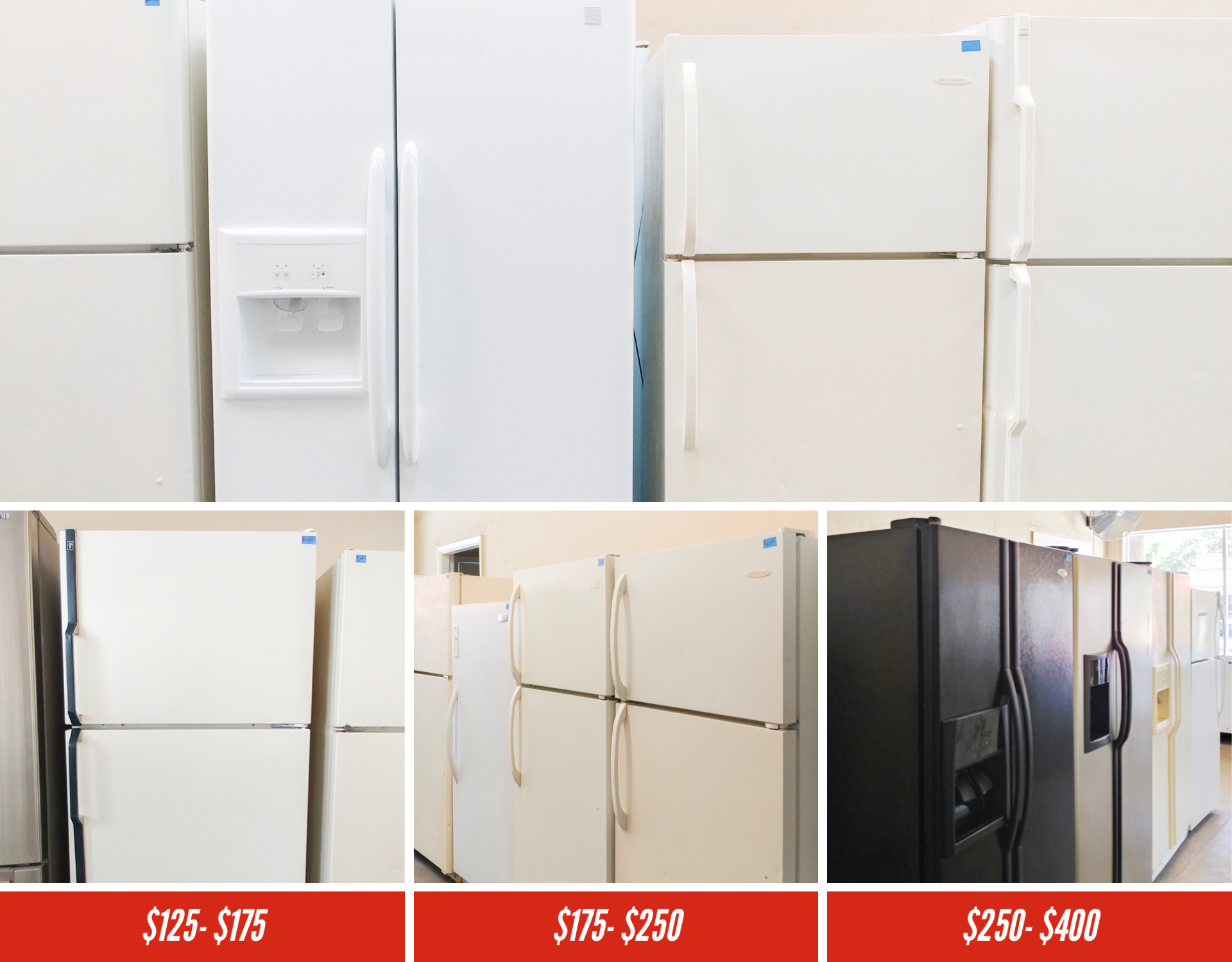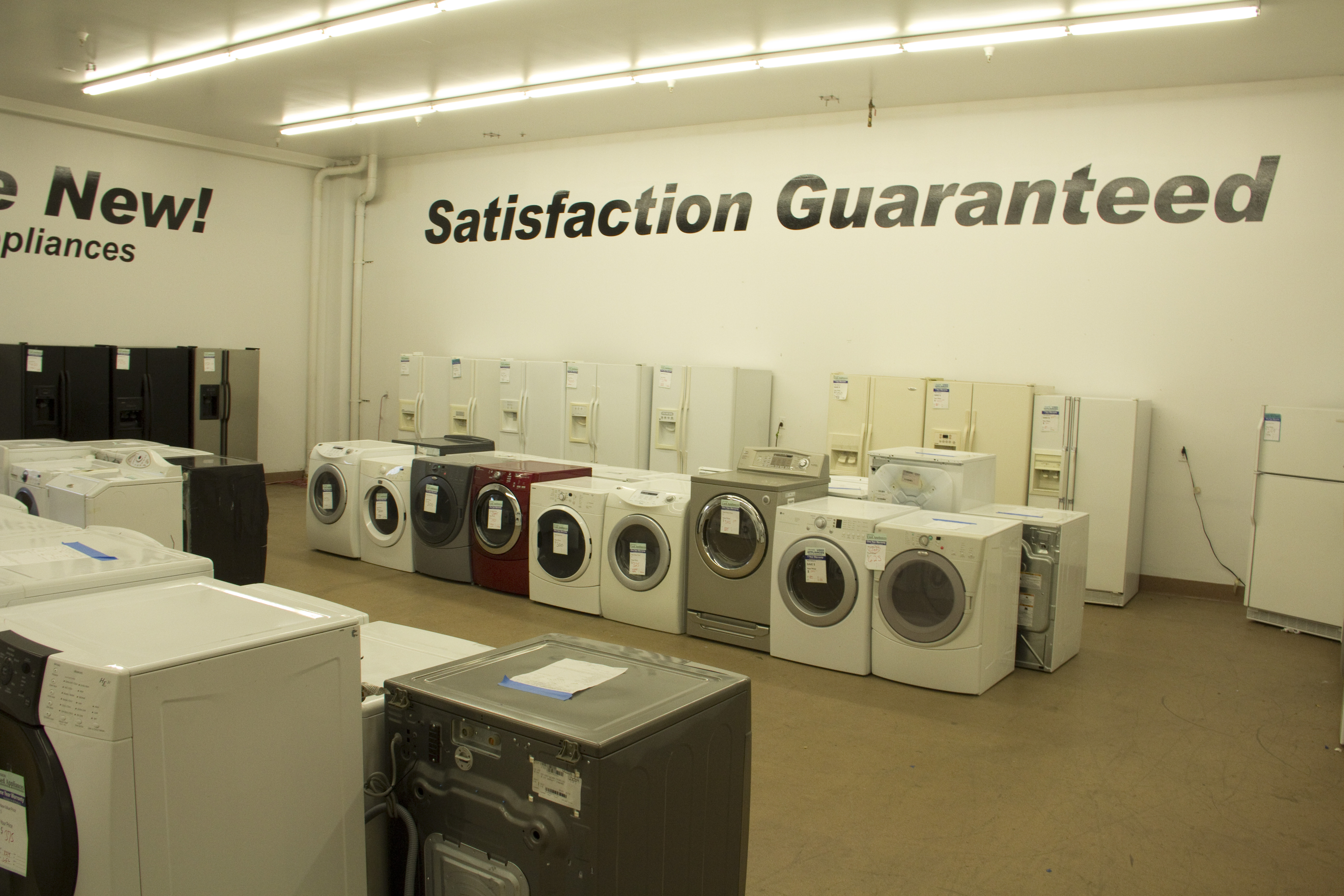When it comes to appliances used appliances, many people are turning to second-hand options for their homes. Whether you're looking to save money or reduce waste, purchasing used appliances can be an excellent choice. However, it's crucial to know what to look for and how to make the right decision when buying pre-owned equipment.
The market for used appliances is growing rapidly, offering a wide range of options for those who want to furnish their homes affordably. From refrigerators and washing machines to ovens and dishwashers, there are plenty of opportunities to find quality appliances that still have plenty of life left in them.
In this article, we'll dive deep into everything you need to know about buying used appliances. We'll cover how to identify quality products, where to find them, and tips for negotiating prices. By the end, you'll be well-equipped to make informed decisions that benefit both your wallet and the environment.
Read also:Atlas Golf Carts The Ultimate Guide To Luxury And Performance
Table of Contents
- Introduction to Used Appliances
- Benefits of Buying Used Appliances
- Where to Find Used Appliances
- Types of Used Appliances
- How to Inspect Used Appliances
- Understanding Pricing and Negotiation
- Tips for Maintaining Used Appliances
- Environmental Impact of Used Appliances
- Legal Considerations and Warranties
- Conclusion and Call to Action
Introduction to Used Appliances
Why Choose Used Appliances?
Used appliances offer a cost-effective solution for individuals and families looking to equip their homes without breaking the bank. These appliances are often still in excellent working condition but may have been replaced by newer models or upgraded versions. As a result, they provide a fantastic opportunity for budget-conscious buyers to acquire quality equipment.
One of the primary reasons people opt for used appliances is the significant cost savings. New appliances can be expensive, especially for those on a tight budget. By choosing pre-owned options, buyers can enjoy the same functionality at a fraction of the price.
Benefits of Buying Used Appliances
Financial and Environmental Advantages
Purchasing used appliances comes with several benefits, both financial and environmental. Let's explore some of the key advantages:
- Cost Savings: Used appliances are generally much cheaper than their brand-new counterparts, allowing buyers to stretch their budgets further.
- Reduced Waste: By giving second-hand appliances a new home, you're helping to reduce electronic waste and promote sustainability.
- Quality Assurance: Many used appliances are still in great condition and can last for years with proper maintenance.
Additionally, buying used appliances aligns with the growing trend of sustainable living, where individuals aim to minimize their carbon footprint by reusing and recycling items whenever possible.
Where to Find Used Appliances
Popular Sources for Pre-Owned Appliances
There are numerous places where you can find quality used appliances. Here are some of the most popular sources:
- Online Marketplaces: Websites like Craigslist, Facebook Marketplace, and eBay offer a wide selection of used appliances listed by individuals and businesses.
- Local Classifieds: Checking local newspapers or community boards can also lead to great deals on second-hand appliances.
- Appliance Retailers: Some retailers specialize in selling refurbished or used appliances, ensuring they meet certain quality standards before resale.
When searching for used appliances, it's essential to verify the credibility of the seller and ask for detailed information about the product's condition.
Read also:Hixson Middle School A Comprehensive Guide To One Of The Best Educational Institutions
Types of Used Appliances
Commonly Available Pre-Owned Appliances
The types of used appliances available vary depending on your location and demand. Here are some of the most commonly found options:
- Refrigerators: Energy-efficient models that can save you money on electricity bills.
- Washing Machines: Both top-load and front-load varieties are often available in excellent condition.
- Ovens: Gas or electric ovens that are still functional and ready to cook your favorite meals.
- Dishwashers: Compact and full-sized dishwashers that can handle your kitchen cleaning needs.
Each type of appliance has its own set of features and considerations, so it's important to research thoroughly before making a purchase.
How to Inspect Used Appliances
Key Factors to Check Before Buying
Inspecting used appliances is a critical step in the purchasing process. Here are some key factors to consider:
- Condition: Look for visible signs of wear and tear, such as scratches or dents.
- Functionality: Test the appliance to ensure it works as intended. For example, check if the refrigerator keeps items cold or if the washing machine spins properly.
- Warranty: Ask if the appliance comes with any remaining warranty or if the seller offers a return policy.
Taking the time to thoroughly inspect an appliance can save you from potential headaches down the line.
Understanding Pricing and Negotiation
Tips for Getting the Best Deal
Pricing for used appliances can vary widely based on factors such as brand, age, and condition. To get the best deal, consider the following tips:
- Research Market Prices: Compare prices across different platforms to get an idea of what's fair for the appliance you're interested in.
- Negotiate: Don't be afraid to negotiate the price, especially if the appliance has visible defects or is older.
- Bulk Purchases: If you're buying multiple appliances, ask for a discount for purchasing in bulk.
By being informed and strategic in your negotiations, you can often secure a better price for the appliances you need.
Tips for Maintaining Used Appliances
Extending the Lifespan of Your Appliances
Proper maintenance is key to ensuring your used appliances last as long as possible. Here are some tips to help you keep them in good working order:
- Regular Cleaning: Clean appliances regularly to prevent dirt and grime buildup.
- Schedule Maintenance: Have a professional technician inspect and service your appliances annually.
- Follow Manufacturer Guidelines: Refer to the user manual for specific maintenance instructions.
By following these maintenance tips, you can maximize the lifespan of your used appliances and avoid costly repairs.
Environmental Impact of Used Appliances
How Buying Used Appliances Helps the Planet
Choosing used appliances over new ones has a positive impact on the environment. Here's how:
- Reduces Waste: By purchasing second-hand appliances, you're keeping them out of landfills and extending their useful life.
- Less Energy Consumption: Manufacturing new appliances requires significant energy and resources. Buying used reduces the demand for new production.
- Promotes Sustainability: Supporting the reuse of items aligns with sustainable living practices and contributes to a healthier planet.
Every small action counts when it comes to protecting our environment, and opting for used appliances is a step in the right direction.
Legal Considerations and Warranties
What You Need to Know Before Buying
Before purchasing used appliances, it's important to understand any legal considerations and warranties that may apply. Here are a few key points:
- Check Local Laws: Some regions have specific regulations regarding the sale of used appliances, so make sure you're compliant.
- Ask About Warranties: Inquire if the appliance comes with any warranty or if the seller offers a return policy.
- Get It in Writing: Always request a receipt or contract that outlines the terms of the sale.
Being aware of these legal aspects can protect you as a buyer and ensure a smooth transaction.
Conclusion and Call to Action
In conclusion, buying used appliances can be a smart and sustainable choice for those looking to equip their homes affordably. By following the tips and guidelines outlined in this article, you can make informed decisions that benefit both your wallet and the environment.
We encourage you to share this article with others who may find it helpful and leave a comment below with your thoughts or questions. Additionally, explore our other articles for more tips on home improvement and sustainable living. Together, we can make a difference in reducing waste and promoting a greener future.
Data and statistics referenced in this article come from reputable sources such as the Environmental Protection Agency (EPA) and industry reports. Always verify information with credible references before making any purchasing decisions.


